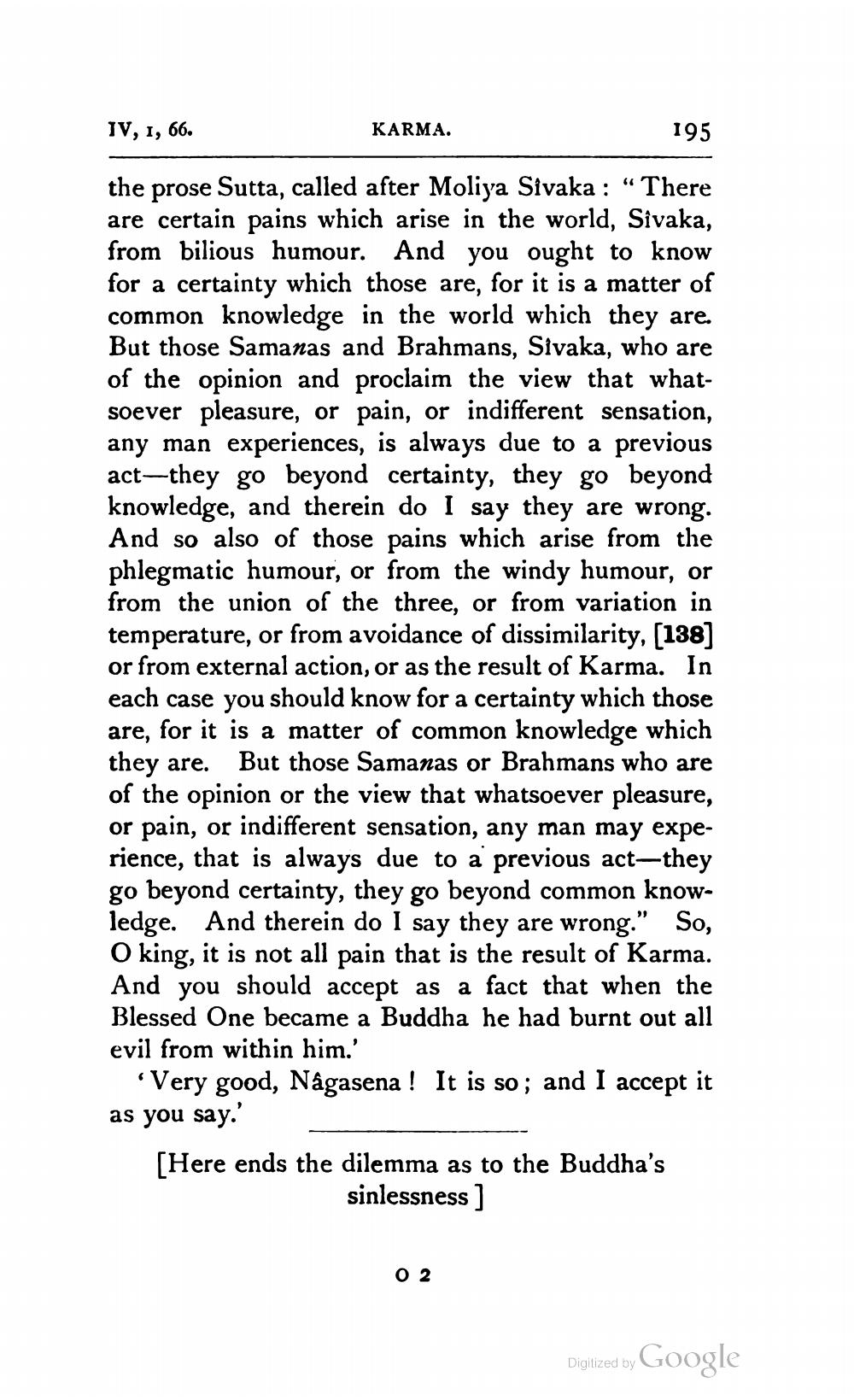________________
IV, 1, 66.
KARMA.
195
the prose Sutta, called after Moliya Sivaka : “There are certain pains which arise in the world, Sivaka, from bilious humour. And you ought to know for a certainty which those are, for it is a matter of common knowledge in the world which they are. But those Samanas and Brahmans, Sivaka, who are of the opinion and proclaim the view that whatsoever pleasure, or pain, or indifferent sensation, any man experiences, is always due to a previous act-they go beyond certainty, they go beyond knowledge, and therein do I say they are wrong. And so also of those pains which arise from the phlegmatic humour, or from the windy humour, or from the union of the three, or from variation in temperature, or from avoidance of dissimilarity, [138] or from external action, or as the result of Karma. In each case you should know for a certainty which those are, for it is a matter of common knowledge which they are. But those Samanas or Brahmans who are of the opinion or the view that whatsoever pleasure, or pain, or indifferent sensation, any man may experience, that is always due to a previous act-they go beyond certainty, they go beyond common knowledge. And therein do I say they are wrong." So, O king, it is not all pain that is the result of Karma. And you should accept as a fact that when the Blessed One became a Buddha he had burnt out all evil from within him.'
Very good, Nagasena ! It is so; and I accept it as you say.' [Here ends the dilemma as to the Buddha's
sinlessness ]
02
Digitized by
Diglized by Google




